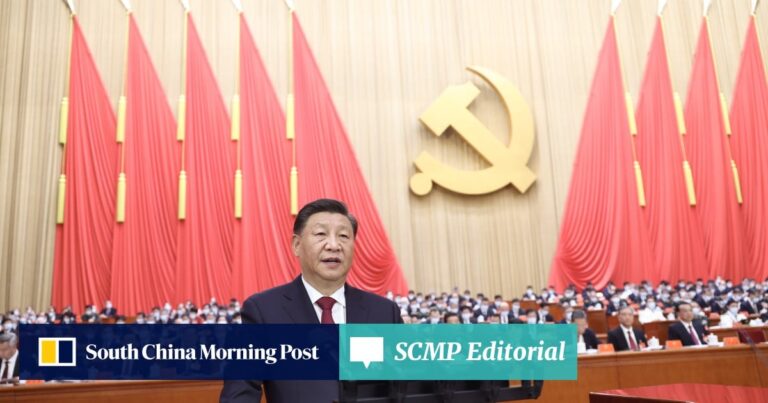Finally, the Chinese Communist Party leadership has scheduled the long-awaited Third Plenum for July. At this meeting, the Central Committee will meet and formulate an economic strategy for the next five to 10 years.
It will be decisive and provide clues to policy directions that will help determine whether China can avoid the increasingly apparent middle-income trap and transform its economy into a developed economy. .
The Third Plenary Session is often considered the most important of the Central Committee’s seven five-year plenary sessions and would normally have been held in October or November of last year.
However, party leader Xi Jinping’s term limit expires in 2018 and he is currently in his third term, giving him room for flexibility as his leadership is undisputed.
Perhaps extra time was needed for fact-finding and policy coordination efforts to address development complexities posed by domestic and international challenges.
China’s Politburo warns of risks as Communist Party prepares for Third Plenum
China’s Politburo warns of risks as Communist Party prepares for Third Plenum
The timing is significant, coming in the month of the party’s founding anniversary and ahead of the 75th anniversary of the founding of the People’s Republic of China in October.
Being late for a meeting doesn’t lower the stakes. Indeed, the decision-making Politburo last week warned of risks “lurking in key sectors” of the domestic economy and fierce competition abroad, saying China needed to reform and gain strategic advantages.
The country faces major trade tensions with the United States and the European Union over “overcapacity” in semiconductors, electric vehicles, lithium-ion batteries and solar panels.
Mr. Xi and his leadership team plan to explain and reinforce key messages to party elites. The plenary session would be a natural venue to announce the fate of ousted former foreign and defense ministers Qin Gang and Li Shangfu, both members of the Central Committee. However, it is unclear whether their lawsuit will be on the agenda.
Avoiding China being trapped in a developing country is far more important than personnel issues. Mr. Xi is trying to orchestrate changes to help the economy prevent its rise to higher incomes from rising costs and weakening competitiveness.
He emphasized the need for China to move into higher-quality fields such as science and technology, digital economy, artificial intelligence and green investment, and to build new productive capacity.
The party views its leadership of central and local governments and other stakeholders as providing critical stability, long-term vision and political will to orchestrate this transformation.
The Politburo also cited China’s resilience, huge market and complete production supply chain as advantages. Leveraging these to overcome challenges requires not only simple central control, but also flexibility, vigilance, and, in some cases, proactive action.
Success could determine whether China gains the keys to the rich-nation club.

